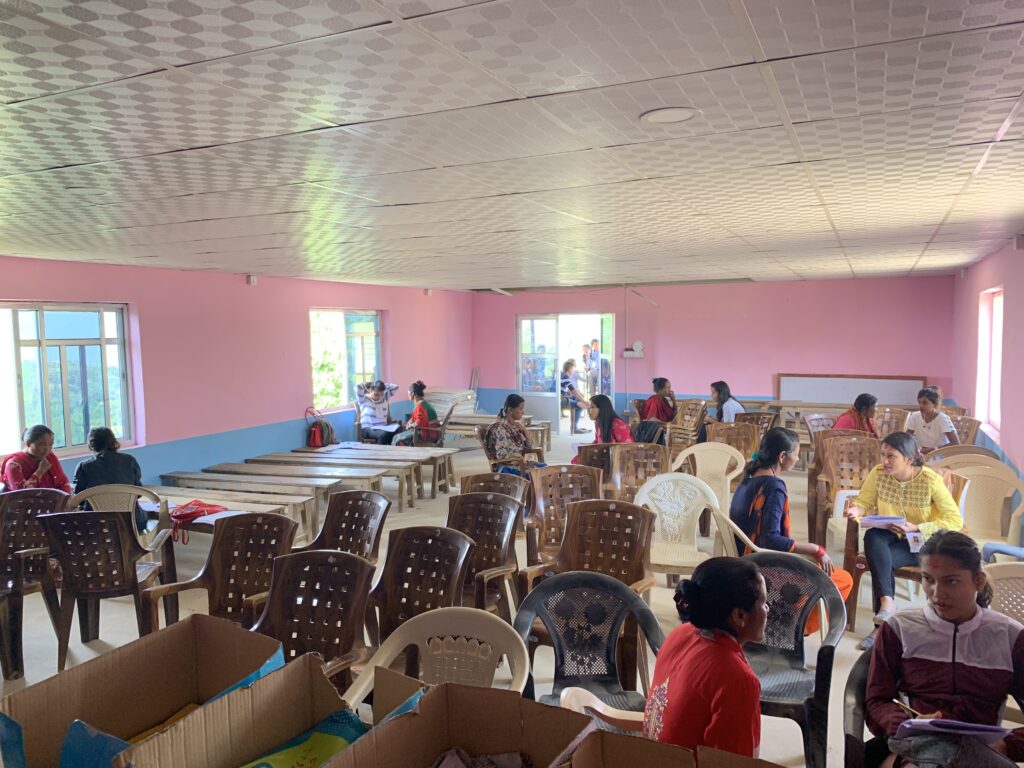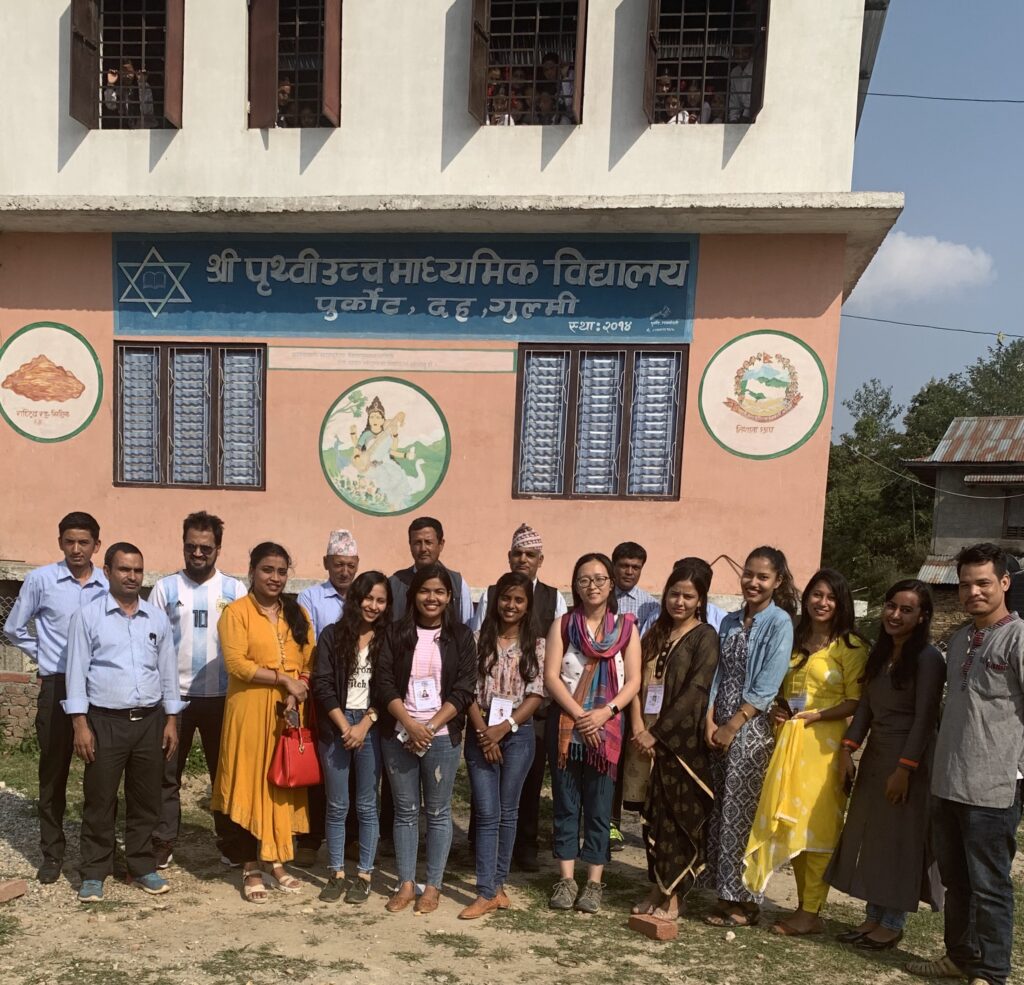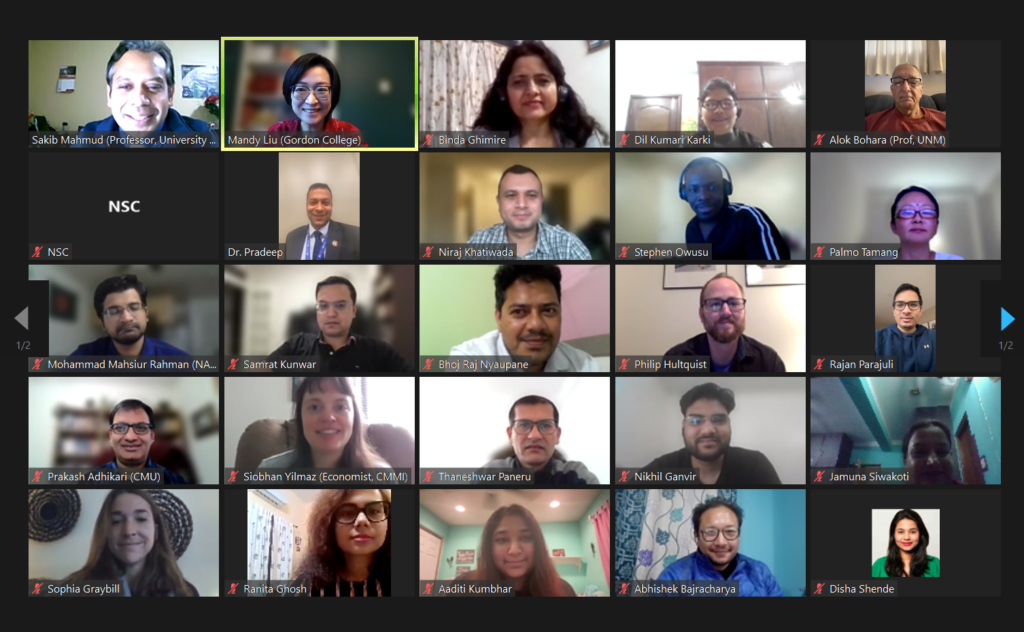Unlocking Demand: Mandy Liu’s Economic Study Reveals Need for HPV Vaccines in Nepal
What does economics have to do with human papillomavirus (HPV) vaccines? Everything, according to Mandy Liu, professor of economics. She presented her research “Like Mother Like Daughter? Behavioral and Economic Factors to Determine HPV Vaccination for Mothers and Adolescent Daughters: Evidence in Nepal” at the Himalayan Policy Research Consortium (HPRC) on December 3-4, 2023.
“I want to improve the girls’ future,” Liu says. “I turned to this field of child and adolescent economics to study their human capital, including their health and education, because I’m trying to see what factors will change their outcomes.”
The Need for Vaccines

The research Liu presented started with a field study in Nepal in 2019. HPV is responsible for almost all cases of cervical cancer, but the HPV vaccine is not yet approved in this small South Asian country. Its neighbor, China, only approved the vaccine in 2019. Liu wanted to show that there was a need for the vaccine in Nepal, a developing country with a high cancer burden.
The Public Library of Science found that new cancer cases and deaths in Nepal increased from 1990 to 2017 by 92 percent and 95 percent, respectively. Treatment is inaccessible or too expensive for most citizens of Nepal, where budgets and resources are often limited. Approving the vaccine can prevent cervical cancer while empowering Nepalese women to protect themselves through education and health advocacy in a male-dominated society.
“Economics is also about cost-effectiveness—you have a small price to pay now, but in the future it can prevent a bigger cost by avoiding cancer,” Liu says. “We need to help the Nepalese government see that this is an investment in the future health of women and girls.”

Liu surveyed girls aged 10-18 and their mothers, since parents usually have a large say in an adolescent’s health decisions. Among the sample of mothers (434 women), 93 percent said they would likely get their daughters the HPV vaccine when it’s available. Among the 434 daughters surveyed, 91 percent said they would get the HPV vaccine once available, and more than 20 percent were strongly likely to do so.
Willingness to receive the vaccine is high, but willingness to pay for it is more of a challenge. Among the mothers surveyed, their willingness to pay for the HPV vaccine was about $40 for three shots—much lower than the market price in neighboring countries. The vaccine’s price could be a burden that needs a government subsidy, which could impact when and how the government approves it.
“When we think about economics, it’s always talking about how we allocate resources,” Liu says. “When we have limited resources in our own lives, how generous are we with our decisions towards others? God asked us to love our neighbors, and who are our neighbors? Is that just your local neighbors? Your community? Maybe it can be your global neighbors who really need your help.”
A Cross-Cultural Connection
Liu’s research was among 19 presentations at this year’s HPRC, which started as a way for researchers, scholars, professors, practitioners and others in North America to present research on economics in South Asia for the sake of improving public policy. Liu has been a conference coordinator for six years, helping behind the scenes by organizing the website, social media, call for abstracts and selection of presentations.

“This platform is to study these issues and recommend policies and implications for them to adjust to get a better solution for those issues,” Liu says. “We want to provide study outcomes to show some evidence for policy change and help for the people who are in South Asia.”
When HPRC went virtual during the COVID-19 pandemic it became a bridge between the regions, connecting the resources of North American scholars with the frontline experience of South Asian scholars. Their combined strength has produced compelling research, such as “An Exploratory Study of Mental Health and its Care in India” and “The Impact of Natural Disasters on Child Health and Investments in Bangladesh.” Thanks to the economic work of Liu and other researchers, there is much hope for increased welfare and better standards of living for people living in these developing countries.
 The Bell
The Bell